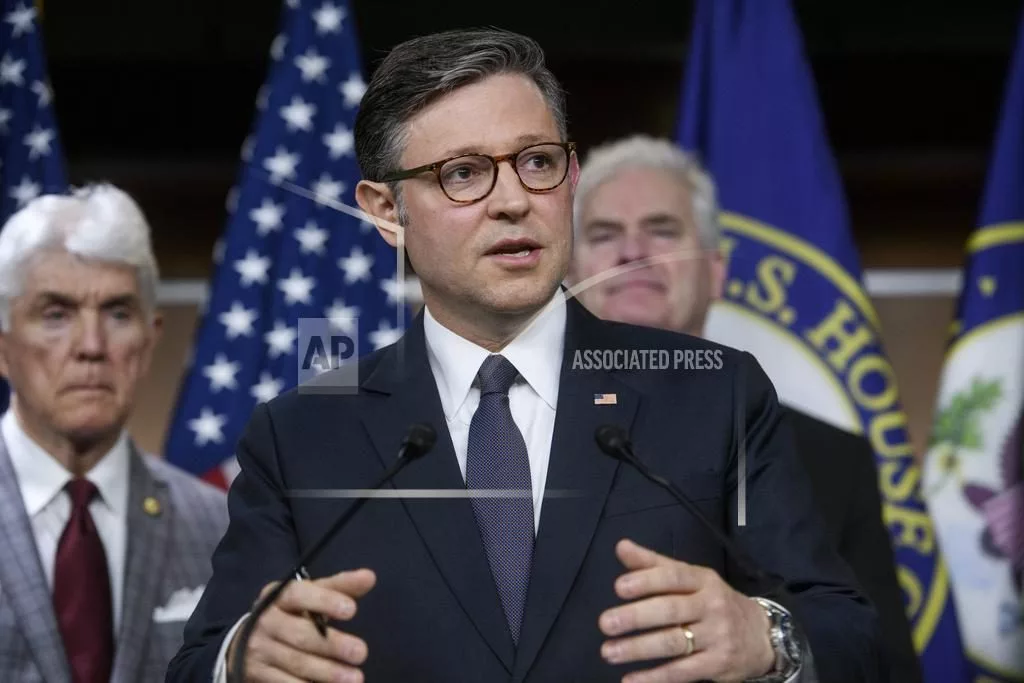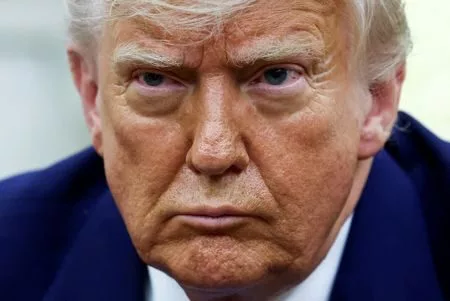WASHINGTON (AP) — Tax breaks tallying more than $5 trillion — but made possible by sizable savings in Medicaid and overturning Biden-era regulations to fight “climate change” — are facing sharp debate Tuesday as House Republicans grind through marathon hearings on their “big, beautiful bill.”
It’s still a long night ahead. Republicans are working to push President Donald Trump’s signature legislative package through a gauntlet of committees over mounting opposition from Democrats, advocacy groups and even some wary Republicans themselves.
It’s the biggest political and legislative debate for the Republicans leading Congress since Trump’s first term, setting up a career-defining clash over the nation’s priorities.
Trump, speaking at a forum in the Middle East, struck an ambitious chord, saying Congress was “on the verge of passing the largest tax cut and regulation cut in American history.”
“If we get that, that will be like a rocket ship for our country,” Trump said in Saudi Arabia.
But to be sure, there are many more steps before the package becomes law.
At its core, the goal for GOP lawmakers is to extend — and enhance — tax cuts approved in 2017, adding the president’s campaign promises for no taxes on tips, Social Security income and car loan interest.
It should be noted that taxes would go up if the tax cuts are not extended.
There’s also larger standard deduction, $32,000 for couples, a boost to the Child Tax Credit and a potentially higher cap of $30,000 on state and local tax deductions, known as SALT, among others.
That’s offset by $1.9 trillion in savings largely from the rollback of green energy tax credits, for a net tally of $3.7 trillion in costs over the decade, according to the most recent estimates — along with billions more in savings from domestic programs.
Additionally, the Republicans are boosting spending on their GOP priorities, with $350 billion for Trump’s mass deportation plans and funding for the Pentagon.
At the same time, the Republicans are seeking to defray the lost tax revenue and avoid skyrocketing national deficits by with another GOP goal, which is scaling back federal spending.
The Republicans are proposing cuts of nearly $800 billion over the decade to the Medicaid health care program.
Tucked into the package is a smattering of other provisions important to the White House — including one that would allow the Trump administration to yank the tax exempt status of groups it says support terrorists.
Speaker Mike Johnson is determined to push the package through the House by Memorial Day, sending it to the Senate, where Republicans are working on their own version and approach.
Johnson and his leadership team have been conferring constantly with Trump at every step.
Rep. Jason Smith, the Republican chairman of the Ways & Means tax writing committee said he met with Trump on Friday and went over the tax provisions “line by line.”
“He was very happy with what we’re delivering,” Smith said.
On Tuesday, the final three of 11 House committees working on the package drilled down on some of the largest components.
Estimates from the non-partisan Congressional Budget Office show that at least 7.6 million people could lose health insurance with the Medicaid cuts, and potentially more with the changes to the Affordable Care Act. Mostly, the health care changes involve imposing new work requirements for aid recipients.
But Republican Rep. Gary Palmer of Alabama said his side is trying to make the health care program work better by rooting out waste and inefficiencies.
“We’re trying to save Medicaid,” he said.
With the slimmest majority in the House, Johnson has just a few votes to spare, and is running into resistance from his party, including lawmakers in the Senate, which also has thin GOP margins.
The lawmakers are racing for a July 4 deadline to have the whole package sent to Trump’s desk in time to also avoid a dangerous debt default. The Treasury Secretary has said federal tax revenues are running short and Congress needs to raise the spending limit to keep paying the bills.
The package includes a $4 trillion boost to the nation’s now $36 trillion debt limit, enough to fund operations past the 2026 midterm election.
Brought to you by www.srnnews.com







